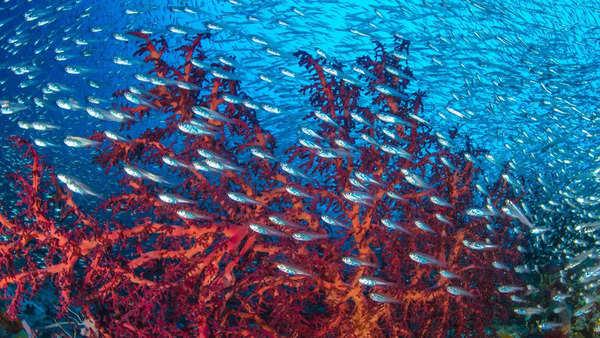Current findings have raised vital issues concerning the state of our oceans. A report from the Potsdam Institute for Local weather Influence Analysis (PIK) has highlighted that ocean acidification is nearing a vital threshold. This growth poses a extreme menace to marine life and ecosystems. The report, launched on September 23, 2024, outlines that the world’s oceans have gotten more and more acidic as a result of absorption of carbon dioxide (CO2) emissions from human actions.
Boris Sakschewski, one of many lead authors of the report, defined that as CO2 emissions rise, extra of it dissolves in seawater, resulting in increased acidity ranges.This course of, often known as ocean acidification, disrupts the fragile stability of marine ecosystems. Even with speedy emission cuts, some stage of continued acidification is unavoidable as a result of CO2 already emitted and the time it takes for the ocean system to reply.

Consultant picture
The report identifies 9 planetary boundaries which might be essential for sustaining Earth’s stability. Six of those boundaries have already been exceeded, and ocean acidification is on the verge of changing into the seventh. The opposite boundaries embody local weather change, lack of biodiversity, and the disruption of biogeochemical flows. The one boundary not near being breached is the state of the planet’s protecting ozone layer.
Ocean acidification has dire penalties for marine life. Acidic waters harm corals, shellfish, and phytoplankton, that are important elements of the marine meals internet. Corals, for example, wrestle to construct their calcium carbonate skeletons in acidic situations, resulting in weakened reef constructions. Shellfish, corresponding to clams and oysters, additionally face difficulties in forming their shells, making them extra weak to predators and environmental stressors.
Phytoplankton, the muse of the marine meals chain, are additionally affected by acidification. These microscopic organisms play a major position in carbon sequestration and oxygen manufacturing. Their decline might disrupt the complete marine ecosystem, affecting species that depend on them for meals, together with fish and marine mammals.
The implications of ocean acidification lengthen past marine life. The oceans take in about 25% of all CO2 emissions and seize 90% of the surplus warmth generated by these emissions. If the oceans change into too acidic, their potential to carry out these features diminishes, exacerbating global warming and local weather change.
Levke Caesar, a local weather physicist at PIK and co-author of the report, emphasised the interconnectedness of the 9 planetary boundaries. He famous that the present situations may already be problematic for varied marine organisms, suggesting a have to re-evaluate what ranges will be thought-about secure. The report underscores the urgency of addressing CO2 emissions to stop additional harm to marine ecosystems and the broader local weather system.
The findings of the PIK are a blaring purple alarm concerning the state of our oceans and the pressing want for motion. The continued rise in CO2 emissions from fossil fuels like oil, coal, and fuel is pushing the oceans towards a tipping level. With out vital efforts to scale back emissions and mitigate the impacts of acidification, the way forward for marine life and the well being of our planet stay in jeopardy.
Why are ladies extra in danger for coronary heart illness?



